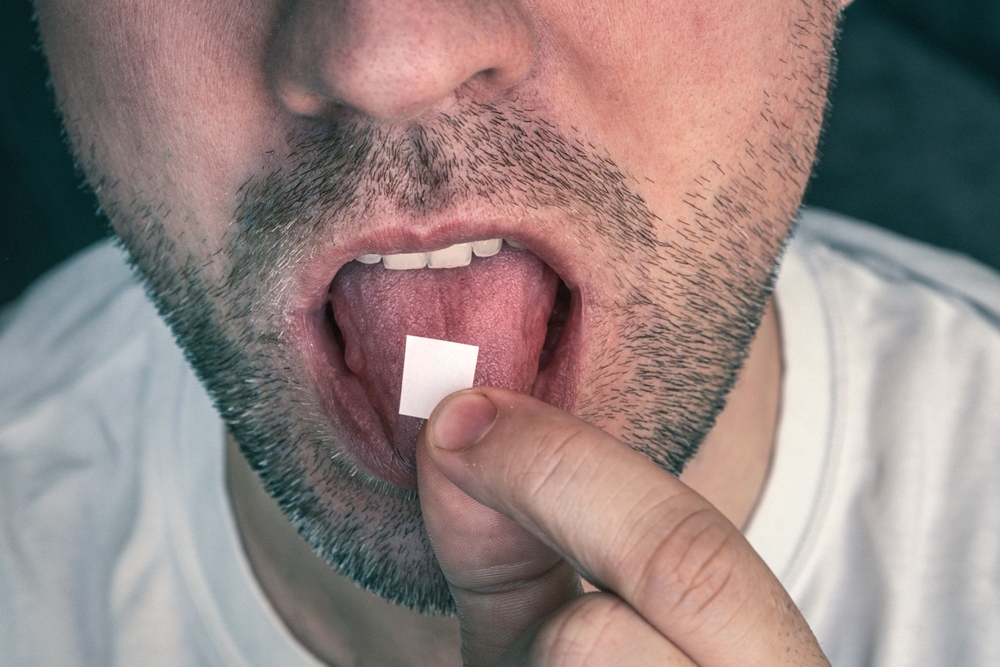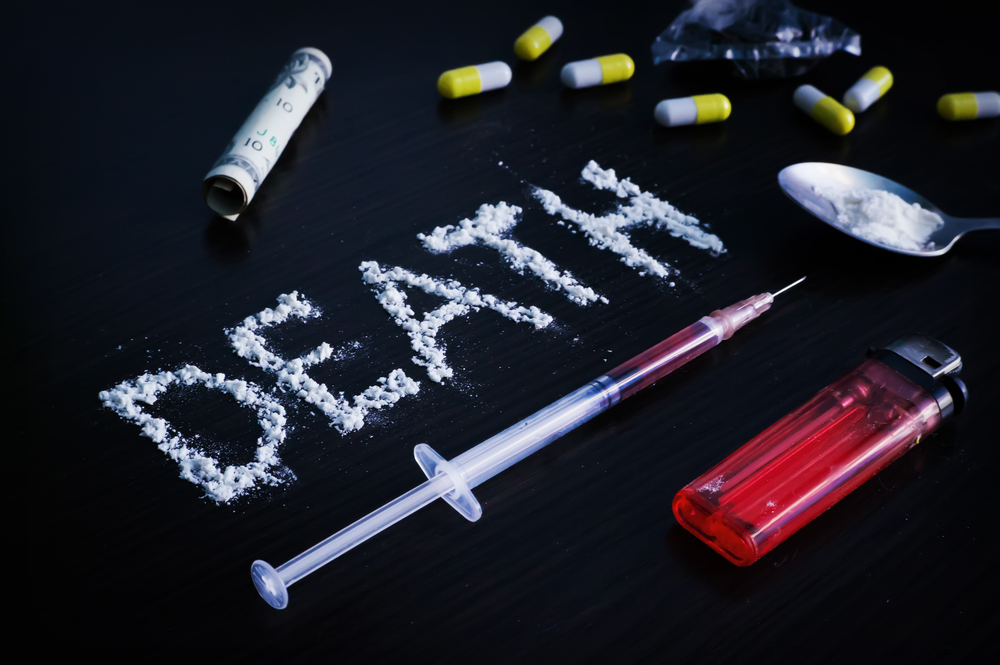Last Updated:
July 21st, 2025
DMT Addiction | Symptoms, Effects and Causes
What Is DMT?
DMT (Dimethyltryptamine) is a powerful hallucinogenic drug that alters perception, mood and thought processes. It naturally occurs in some plants and animals but is more commonly associated with its synthetic form. Often referred to as the “spirit molecule,” DMT induces intense and short-lived hallucinations described as otherworldly or spiritual experiences.
The drug can be found in various forms, including crystalline powder (typically smoked), liquid (for injection) or as part of ayahuasca, a plant-based brew used in spiritual ceremonies.
People use DMT for its intense hallucinogenic effects, often seeking enlightenment, self-discovery or escapism. However, these experiences can be highly unpredictable and emotionally overwhelming.
In the UK, DMT is classified as a Class A drug, making its production, possession and distribution illegal. Breaking these laws can result in severe penalties, including imprisonment.

Is frequent usage of DMT dangerous?
Yes, frequent usage of DMT can be dangerous. While its effects are often perceived as short-lived, the drug’s intense impact on the mind should not be underestimated. Users describe being transported to entirely different realms or dimensions, where reality feels distant or non-existent. When they “return” from a DMT experience, confusion about whether they are truly back in reality can linger. This disorientation can cause anxiety, panic or even dangerous behaviours.
DMT can also induce terrifying hallucinations, leaving users feeling trapped in surreal experiences that seem impossible to escape. These overwhelming experiences increase the risk of accidental harm or reckless behaviour.
Additionally, there’s the potential for developing Hallucinogen Persisting Perception Disorder (HPPD), commonly referred to as “flashbacks.” This condition causes users to relive aspects of past DMT trips, often at random, disrupting daily life and mental stability.
Is DMT addictive?
DMT isn’t considered as physically addictive as drugs like cocaine or heroin, but it can still cause psychological dependency. Users may become mentally attached to the intense, transformative experiences or the escape from reality that DMT provides.
Repeated use can lead to tolerance, meaning the user needs higher doses to achieve the same effects. This can increase the risk of harmful side effects, including severe disorientation. The emotional crash after using DMT can prompt further use. After experiencing something profound or intense, everyday life may seem dull in comparison, creating a cycle of repeated use to recapture that initial experience.
What are the signs of a DMT addiction?
Recognising the signs of DMT addiction in yourself or someone else is crucial. Addiction can manifest physically, psychologically and behaviourally, often progressing subtly. Here are some key signs you can look out for when determining whether you or your loved ones have an issue with DMT.
- Dilated pupils: A common indicator of recent DMT use.
- Irregular sleep patterns: Difficulty sleeping due to lingering effects.
- Fatigue: Persistent tiredness following intense trips.
- Headaches: Frequent headaches due to stress or disrupted sleep cycles.
- Reduced appetite: Decreased hunger after emotional or mental exhaustion.
- Cravings: A strong desire to use DMT regularly.
- Mood swings: Alternating between euphoric highs and emotional lows.
- Paranoia: Increased anxiety or feelings of being watched.
- Emotional numbness: Struggling to feel joy or emotional connection.
- Flashbacks: Reliving past DMT experiences without warning.
- Neglecting responsibilities: Missing work, school or family obligations.
- Risk-taking behaviour: Using DMT in unsafe environments or increasing dosage recklessly.
- Social withdrawal: Avoiding friends and family to hide drug use.
- Financial difficulties: Spending significant money on obtaining DMT.
- Secretive behaviour: Hiding drug-related activities from loved ones.
If these signs persist, it may indicate a developing DMT dependency that requires professional help.
Do I have a DMT addiction?
Addiction doesn’t always announce itself loudly; it often develops quietly, only becoming evident when it’s deeply entrenched. If you use DMT, it’s important to reflect on how frequently and why you use it. If you’re concerned that a loved one may have developed a DMT addiction, you could start by asking them the following questions:
- Do you find yourself thinking about using DMT even when you don’t plan to?
- Have you experienced flashbacks or disturbing hallucinations unrelated to recent use?
- Do you feel the need to increase your DMT dosage to achieve the same effects?
- Has your DMT use negatively impacted your relationships, work or daily life?
- Do you struggle to stop using DMT, even when you want to?
- Have you ever used DMT to escape difficult emotions or life challenges instead of facing them?

If you answered ‘yes’ to any of these questions, it might be time to consider seeking professional support for DMT addiction. In the next section, we focus on how a DMT addiction is treated in a professional setting.
How Is DMT addiction treated?
Treating DMT addiction requires a comprehensive approach that focuses on the psychological and emotional aspects of dependency. While DMT doesn’t cause physical withdrawal symptoms, the mental challenges of breaking free from its grip can be significant. DMT rehab can be found in two different settings: Outpatient DMT rehab and inpatient DMT rehab.
Recovery typically begins with an initial assessment to evaluate the individual’s specific needs and which type of rehab is necessary. From there, a personalised treatment plan is created, which may include:
- Therapeutic support: Cognitive-behavioural therapy (CBT) and dialectical behaviour therapy (DBT) are commonly used to address underlying emotional triggers and develop healthier coping mechanisms.
- Holistic therapies: Activities like yoga, meditation, and creative outlets such as art and music help promote emotional healing and self-discovery.
- Group therapy: Sharing experiences with others on similar journeys fosters a sense of community and mutual understanding.
The goal of treatment is to equip individuals with the tools they need to live a fulfilling life free from DMT. Aftercare services, such as support groups or follow-up counselling, are crucial in maintaining long-term recovery.
Reach out for help
If you or someone you care about is struggling with DMT addiction, help is available. Reaching out to a professional rehab centre can be the first step toward regaining control of your life. Don’t wait for the situation to get worse. Contact a trusted service today to start your journey to recovery.
Our compassionate team are ready and available to take your call, and guide you towards lasting the lasting addiction recovery you deserve.
Frequently Asked Questions
(Click here to see works cited)
- Michael P, Luke D, Robinson O. An Encounter With the Other: A Thematic and Content Analysis of DMT Experiences From a Naturalistic Field Study. Front Psychol. 2021 Dec 16;12:720717. doi: 10.3389/fpsyg.2021.720717. PMID: 34975614; PMCID: PMC8716686.

